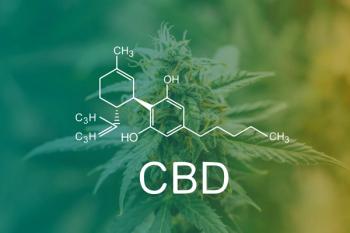
Cannabis Science and Technology
- September 2022
- Volume 5
- Issue 7
- Pages: 14-15
Does Extract Type Make a Difference in Cannabis Edibles?

A review of the claims that differences in extract type can affect cost, ease of formulation, and the experience of the finished product.
In last month’s article, the wide variety of cannabis concentrates were defined and clearly differentiated. Every concentrate type, from crude ethanol extract to distillate, can be used to produce a cannabis edible. Cannabis extract is an ingredient in cannabis edibles production and, as with your food, the quality and makeup of the ingredients affect the quality of the end product. Many have claimed that differences in extract type can affect cost, ease of formulation, and the experience of the finished product. In this article, a review is done of each of these claims to better understand if it truly matters which type of cannabis extract is used in the production of a cannabis edible.
Cost
The cost of production for cannabis extracts has a wide range because of the number of variables. Cost of cannabis plant material, solvents, labor, and equipment are the main factors in calculating cost. If the cost and quality of cannabis plant material were fixed, cost could be assessed purely based on the extraction method. To keep things simple, tetrahydrocannabinol (THC)-dominant extracts are the focus of this cost evaluation. Table I shows a list of concentrates used in the production of edibles ranked by price and by THC content, with 1 being the highest and 4 being the lowest.
The amount of extract used to produce a THC infused edible is dependent on the concentration of THC in the extract. If the target dose of an edible is 10 mg, a higher quantity of extract is required to be used if the THC concentration is lower. Based on this, more extract is required to infuse THC edibles when using a live resin extract versus a distillate. The cost of production is directly correlated with the wholesale price of extract. Many edibles manufacturers select their extract type based on the cost per mg of THC. This is one of the reasons most edibles are produced with distillate.
Ease of Formulation
Cannabis extracts are a complex matrix of many different compounds. Just ask your local analytical chemist! This complexity translates to how the extract interacts with ingredients in an edible. An edible needs all of its ingredients to be stable and maintain its target structure, flavor, and makeup until expiration. The more complex the extract, the more challenging it can be to integrate the extract with an edible. Flavor is another factor in formulation as the extract type will affect the flavor of the final product. The higher the concentration of cannabinoids, like THC, the lower the concentration of other compounds such as terpenes, aldehydes, ketones, and esters. These “other compounds” have unique flavors, which can pass through the edible when the consumer eats or drinks the infused product. Many consumers don’t like the flavor of cannabis, which has influenced how manufacturers produce edibles. Manufacturers can select high-THC distillate, which has little to no flavor, or formulate an edible that can mask the flavor of the cannabis extract. The market contains edible options that use distillate, full spectrum, live resin, or full extract canna oil (FECO) with a wide range of flavor profiles.
Consumer Experience
THC in cannabis is one of hundreds of compounds that influence the effect of cannabis. The jury is still out about whether ingesting terpenes and flavor compounds can influence the cannabis experience. However, there is anecdotal evidence to demonstrate that extract type does impact the effect of an edible. THC, whether in a full spectrum or distillate extract, is still THC. However, the hundreds of other compounds that can be found in full spectrum, live resin, or FECO are not found in distillate.
Science has yet to prove any theories about the effects of extract type in an edible, but it is hard to ignore the fact that different extraction methods produce different chemical profiles. The chemical makeup of distillate is vastly different from the chemical makeup of a live resin, full spectrum, or FECO. So, it is easy to theorize that a different chemical profile will result in a different experience. These differences seem to present themselves in the duration of the high and the complexity of the high. While it is hard to articulate how someone feels when they are “high,” anecdotal evidence suggests that distillate-based edibles are more cerebral and affect the mind. Whereas full spectrum, live resin, or FECO-infused edibles can be felt in the body and some have a distinct energizing or sedative effect depending on the product. These richer, more complex experiences can leave consumers feeling more satisfied with the product. This is why markets are beginning to see consumers shift their purchasing from distillate-based edibles to edibles infused with other extract types (1). Consumers are associating distillate-based edibles as potentially lower quality products than other infusions and it is causing a shift.
Conclusion
Consumers drive the market. Many consumers are still searching for the most cost-effective products on the market. However, market trends are shifting and demonstrating that consumers are willing to pay more for “higher quality” products. Manufacturers are left with making decisions on how to formulate edibles to meet their business model. Manufacturers must balance cost, ease of formulation, and consumer experience to understand which path to take. Time will tell whether consumers have a preference, but for now full spectrum and live resin edibles are taking the market by storm.
Reference
About the Columnist
Lo Friesen is the founder, CEO, and Chief Extractor of Heylo. With a background in chemistry and clinical research, Lo was inspired to explore cannabis as a medicine and to enter the emerging industry. She joined Eden Labs, a leading CO2 extraction equipment manufacturer to support and expand a Research and Development department. There she managed the development of their latest and greatest CO2 extraction system. In 2017, after working with Eden Labs and another cannabis processor, Lo launched Heylo with a mission to help people get more out of life with cannabis.
How to Cite this Article:
L. Friesen, Cannabis Science and Technology® Vol. 5(7), 14-15 (2022).
Articles in this issue
over 3 years ago
Energy and Elements, Part I: Understanding Atomic Spectroscopyover 3 years ago
The Case for THCA and Other Minor CannabinoidsNewsletter
Unlock the latest breakthroughs in cannabis science—subscribe now to get expert insights, research, and industry updates delivered to your inbox.




